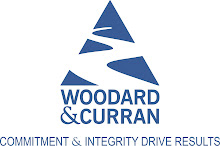Dan Fogel and Peter Marsh
Op Editorial, Winston-Salem Journal 9/9/08
The doubtful among us might call it catching the “green wave” and responding to the natural inclination to “do the right thing,” and therefore perhaps not a serious leadership topic. We have a different view about “Climate Protection Week,” a series of events promoting environmentally sustainable practices in Winston-Salem. This week has a deeper significance and marks an important milestone on the journey of a community in transition.
The Winston-Salem we live in today, like many communities throughout the developed world, enjoyed tremendous growth and prosperity during the industrial era of the late 19th and 20th Centuries. But now the employment base from these industries faces serious decline from, among other things, global competition.
Perhaps it is comforting that we are not alone in that economic transition. The message of this week’s events reaches beyond global competition. It is fundamentally about the fact that we are highly interconnected to many systems (economic, social and environmental) that must be in balance and be regenerative to be sustainable.
This realization is what people in business call the Triple Bottom Line, a phrase originally coined by John Elkington in 1994 and later expanded and articulated in his 1998 book Cannibals with Forks: the Triple Bottom Line of 21st Century Business. In accounting terms it means expanding the traditional reporting framework to take into account environmental and social performance in addition to financial performance.
Our viewpoint comes from our work with municipalities, businesses, non-profit organizations and universities seeking to adopt sustainability principles as part of their core strategy. Recent local examples include our research that supported the Piedmont Triad Research Park’s decision to adopt sustainable guidelines for the development and operation of the park. Another is our consultation with the Family Services organization in the organization’s decision to build the first newly constructed green building in Winston-Salem under the US Green Building council’s LEED rating system.
Our research shows that more than 12 percent of the Top 200 Public and Private Companies in North Carolina are beginning to take action on sustainable practices. Many have begun tactical programs and cost-savings measures around energy conservation, green building practices, or reduction of transportation costs.
With media reporting daily on how climate change, greenhouse gas emissions, dwindling fossil fuel sources coupled with escalating prices, a world food crisis and globalization a impacting people’s lives, communities and organizations are being confronted with an uncomfortable reality: Become part of the problem or become part of the solution.
So how do you get started down the path of sustainability? When dealing with large complex natural systems, how do you know what to do? If many experts say that climate change exceeds the capacity of governments worldwide to solve, how do you get your arms around a course of action at the individual, organizational, community levels?
It begins with the decision to act – to act in a way that equally values social capital, environmental capital and economic advancement in a balanced system. Many municipalities and businesses are stepping up to the plate and exploring ways to merge increased capacity (growth and profits) with social responsibility and environmental sustainability.
That leads to the need for education, research and analysis to begin to frame up the short-, mid-, and long-term opportunities that apply to each specific culture, organization or community. It also leads to a new mindset based in systems thinking, what Paul Hawken, one of the most respected authors in the field, has defined as the “Ecology of Commerce.”
An effective organization that looks at its strategy through a sustainability lens starts with self assessments. These assessments include a review of products, services, processes and business models and how they could be improved using a sustainability lens. Greenhouse gas emissions, energy audits, value chain assessments, competitor analyses and matching processes against standard processes such as ISO 14000 are all methods used by best-in-class firms.
The leadership of this community has begun to answer the question of how to get started. Mayor Allen Joines signed the U.S. Conference of Mayors' Climate Protection Agreement last year, and the city has just completed its first greenhouse gas emissions profile, with a goal of reducing carbon emissions in the city by 7 percent from 1990 levels. "That may not sound like much," Joines said, "but to meet this mark by our goal of 2012, the entire community must be involved and committed."
As an outcome the analysis frequently results in a new way to focus on maximizing results for stakeholders (employees, customers, citizens, stockholders). At the highest level, a new strategy emerges that involves a new set of opportunities and market innovations. Actions that do not add value to an organization and its owners should not be priorities. Sustainability is not only be good for the survival of our planet – it is a key means to increased profitability.
Winston-Salem’s stated goals will lead to an exploration of its connection to larger systems of community and the environment. With our support and energy as citizens, that path will eventually lead to an understanding of sustainability as a core strategy for the entire community.
Friday, October 2, 2009
Subscribe to:
Post Comments (Atom)





No comments:
Post a Comment